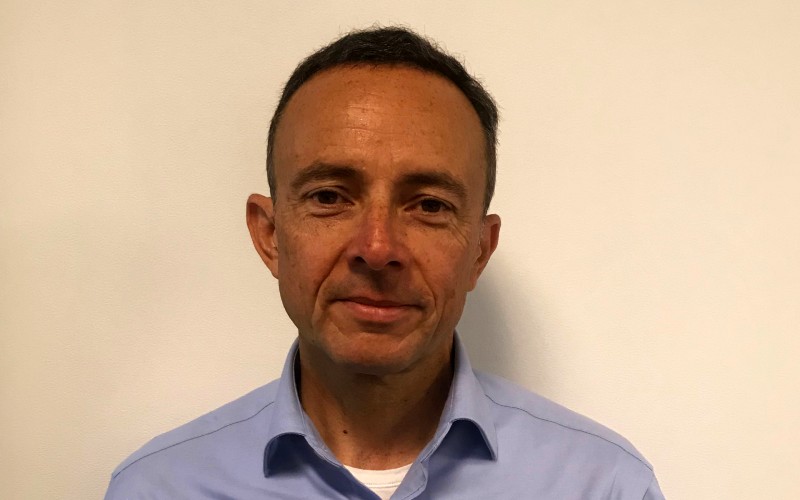The vast majority of startups will fail, with commercial success – or lack thereof – a key factor in a business’s longevity.
Transforming an early-stage business into a commercially-driven organisation is no easy feat, as Alan Jones, CEO of Blu Wireless, can testify.
Jones has worked in the mobile and wireless communications industry since the late 1980s. After witnessing the rise of cellular technologies in the 90s, he helped found mobile broadband company IPWireless before eventually selling the firm to defence giant General Dynamics Inc.
“We originally sold the business to NextWave Wireless back in 2007, but around 2008 the markets were being impacted by the subprime mortgage crisis, so we ended up buying the business back in 2009 through a management buyout,” he explains.
After IPWireless, he co-founded Virtuosys, which subsequently merged with Veea Inc in 2018. He has been at the helm of mmWave technology pioneer Blu Wireless since 2020.
“One of the key challenges for entrepreneurs is how you go from a founder-led business to something that is commercially-focused – creating real value for shareholders,” he tells TechBlast.
“In the very early stages, companies don’t have an organisational structure in place to deliver at scale. If it is going to be successful, it’s important to understand early on in the life cycle the structure that is needed to move from being founder-led into commercial growth.
“Otherwise, moving from 50 products for trials to 50,000 products for commercial deployment is going to be a challenge.”
He adds: “In terms of exiting a company through a trade sale, it’s important to remember that in general, a buyer wants a business that is properly structured and is strategically matched to their business.
“You need to be able to show that your business has a strong track record and a strategy to achieve its objectives. It takes time.”
Blu Wireless
Since becoming CEO of Blu Wireless, it has opened a US entity and is delivering mmWave wireless solutions on a global basis across several verticals.
Notably, its technology is now being rolled out on the busiest section of Britain’s busiest railway: South Western Railway’s route into London Waterloo. Passengers on this route will benefit from multi-gigabit connectivity.
“When starting out, it is vital to understand the long-term objective of the business and the strategy that needs to be developed to get you to the objective – you may need to make some detours along the way, but you can’t get distracted from the long-term objective,” Jones continues.
“You need to keep focused on where you are heading long-term despite the numerous day-to-day distractions.
“It’s also important that you listen to the market and your customers and adjust your plans accordingly. As a business, you need to be flexible, and open to pivoting if the market feedback is compelling. In my experience, most companies pivot from their original business plan at least once if not twice.”
Highlighting the importance of making your company attractive to employees as well as investors, he says: “You need to have the right people in place at the management level that are happy to take the responsibility, know how to deliver, are a good fit for the business and understand where the knowledge gaps are in the structure so that you can hire accordingly.
“You [also] need to spend investors’ money with the same care and attention to detail that you would if it was your own money.”
6G and the future
With 6G touted as the next big thing in wireless communications technology, how does he expect this to boost business growth?
“The lessons learnt from older generations of mobile networks will be enhanced further. If you look at where we are now, a lot of new companies have come out of the 5G space to deliver on certain aspects of the technology… I would expect something similar with the development of 6G.
“I am sure there are entrepreneurs out there thinking about how they can take advantage of the next generation of networks. People right now will be having similar conversations to those we had over 25 years ago – this time about raising seed money for 6G-focused services and products.”
He says 6G has a role to play in sustainable development. “It is likely to involve the enablement of digital solutions that help companies attain net zero emissions through superfast wireless technology,” Jones explains.
“6G also presents an opportunity to reset how businesses and consumers consume data. If telecommunications companies were to implement usage-based billing for data, then we may expect to see a reduction in usage.
“We have seen how, in the energy sector, usage-based billing reduces energy consumption. We may expect to see the same for data usage, which would in turn help reduce the energy demands from telecommunications companies.”
The next 12 months will see Blu Wireless convert pilots and trials into full programmes to establish its market presence, he says.
“We will continue to work together with integrators, manufacturers and service providers to deliver the superior speeds of connectivity needed for the data-intensive applications of the future.”
Forget profits – focus on tech to survive the first 12 months


